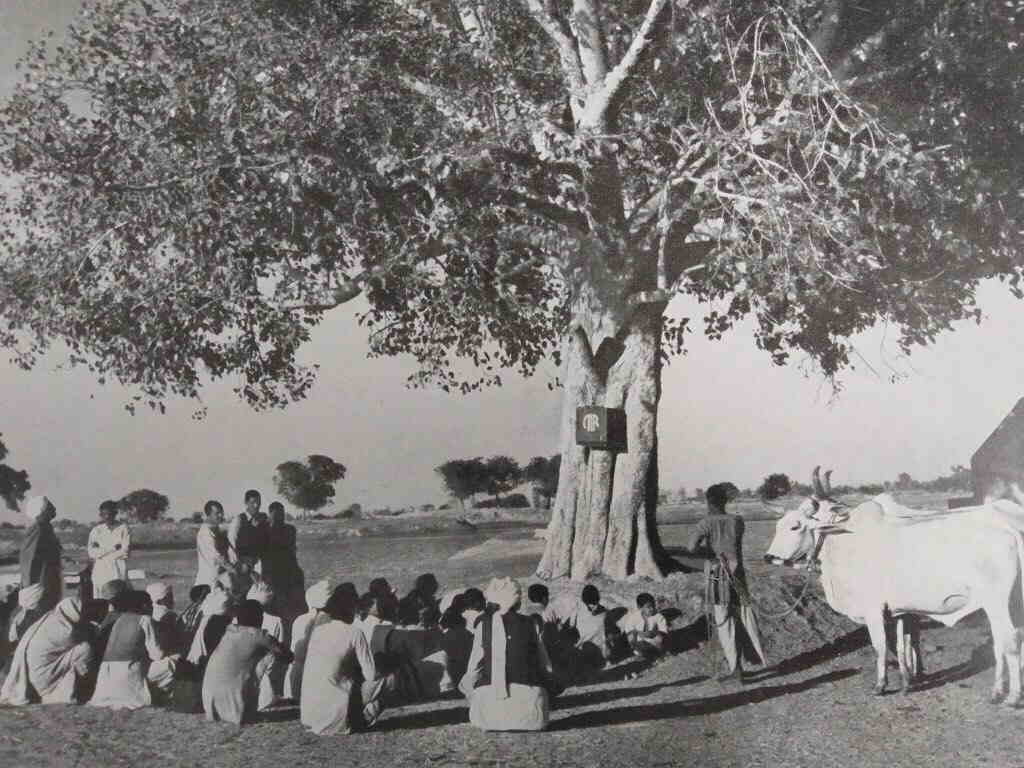Covid-19 pandemic has had unintended consequences. Performing artists and theatre persons, unable to perform on stage and auditoriums have been forced to innovate. All India Radio’s Central Drama Unit took a lead when it uploaded its vintage plays on its YouTube channel. It has since last April 7 been airing refurbished old radio plays from its vast treasure trove.
Has Covid-19 revived radio plays in their digital Avatar? According to the Programme Executive of CDU Vinod Kumar the comments and tweets, have been encouraging. “The Delhi University’s Hindi Department has requested us to upload plays included in their syllabus to help their students; Mumbai teachers said that it aided their students in improving diction.” M. Sayeed Alam, who directed his first radio play To Gandhi Ji With Spelling Mistakes, feels it is a beginning and too early to predict. “It should have been tried earlier because for those groups unable to bear the production cost of stage theatre and those in the audience not able to attend shows due to paucity of money or time, radio play is a viable alternative.”
Veteran playwright and director Danish Iqbal points out that since radio play production is expensive, not all platforms may adopt it. Also advertisement breaks during the play are difficult, hampering revenue generation. Having said that, he states “podcasting which needs varied and better story telling will and should adopt plays to offer more nuanced and visual narrative to the listeners.”
Backing new technology, Alam says it will help in lowering production cost. “You can record while rehearsing for a stage play in a room with a sensitive mic; use noise reduction technique to make it more audible. It essentially is less expensive than stage as there is no costume, props and make-up and auditorium rent.” Tweaking stage play script also makes it suitable for radio. “To identify a place you include a dialogue about it like in To Gandhi Ji With Spelling Mistakes to identify Karachi we had Pakistani TV news channel broadcast in the background. To give a feel of traffic, we introduce car sound and blaring of horn.” He is set to present now Akbar The Great Nahi Rahe and Hazrat Krishna in Urdu as radio plays.
According to Kumar the soaring popularity of radio plays during pandemic will continue. “We need to ensure its clear transmission to different corners of India; offer genres like mythologies, historical, comedy and thrillers besides classic literature and shorter duration plays. Further, radio plays can generate revenue if they are produced for corporates, NGOs and Government organisations to convey their message. It needs to compete with TV, cable and dish platforms. So only quality and variety will sustain it.” Audio version of stage plays can be used to trigger interest for proscenium, he added.
Striking a similar note, Shashi Shekhar Vempati, CEO, Prasar Bharati describes radio plays as a unique genre of cultural content preserving the memory of celebrated works of literature through an oral tradition. Referring to AIR’s offering on YouTube he says, “we have created an opportunity for the younger digital era generations to experience this genre of radio content and in the process learn languages and become aware of celebrated works of literature in those languages.”
For young actors, radio plays are an apt stepping stone for aspiring actors. Sayeed observes “it is a good way to begin”, while Kumar states that “it provides good grounding in several aspects of theatre, like dialogue delivery, voice modulation, use of pauses, silence, etc”. Seasoned actress Suchitra Gupta, with more than four decades of experience, avers, “radio plays teaches use of one’s voice to create visual imagery, highlight the emotions, be it comedy or romantic or tragedy, and most importantly diction and pronunciation, which becomes a part of your personality.” Iqbal cites the examples of stalwarts Raj Babbar, Ram Gopal Bajaj, V.M. Badola, Banwari Taneja, S. M. Zaheer, among others, all of whom did radio plays and acquitted themselves as great actors on stage, TV and films.
Undoubtedly radio plays were a great source of entertainment and education, when there was no proliferation of visual medium. At present, for the medium to become popular, a synergetic relationship among public, private broadcasters, and the theatre people is essential. Latest transmission infrastructure, fresh content and connecting with the millennials through digital medium is what is required for this format to regain their lost glory.




















